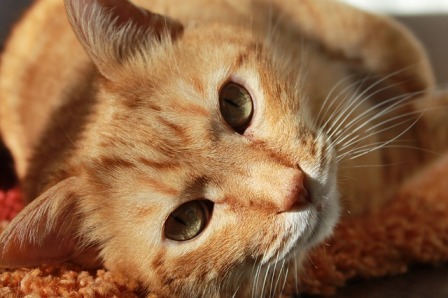How Cats Help People in Need
How Cats Help People in Need
Cats help many people to go through difficult life stages, cope with illnesses, and even heal completely. Their instincts enable them to feel when their owner is sad, anxious or depressed. They are always there to conform people when necessary. In many cases, cats appear just in the very important life period of the owner. They seem like following some invisible inner calling to make a strong bond with the owner they choose and offer their support, as a secret mission. But, what are their hidden gifts? How do they help people in need? According to many testimonials, their power is love, which they give unconditionally. Cats do not judge people; they do not expect or demand specific behavior from the owner, and do not criticize them. Through their unconditional giving and comforting presence, people feel their old wounds start healing, their soul is regenerated, and their sense of joy is growing. The article “Pet Therapy: How Animals and Humans Heal Each Other“ explains the therapeutical effect of cats in helping people in need.
How Cats Help People in Need
The use of pets in medical settings actually dates back more than 150 years, says Aubrey Fine, a clinical psychologist and professor at California State Polytechnic University. “One could even look at Florence Nightingale recognizing that animals provided a level of social support in the institutional care of the mentally ill,” says Fine, who has written several books on the human-animal bond.
But it was only in the late 1970s that researchers started to uncover the scientific underpinnings for that bond.
One of the earliest studies, published in 1980, found that heart attack patients who owned pets lived longer than those who didn’t. Another early study found that petting one’s own dog could reduce blood pressure.More recently, says Rebecca Johnson, a nurse who heads theResearch Center for Human/Animal Interaction at the University of Missouri College of Veterinary Medicine, studies have been focusing on the fact that interacting with animals can increase people’s level of the hormone oxytocin.
“That is very beneficial for us,” says Johnson. “Oxytocin helps us feel happy and trusting.” Which, Johnson says, may be one of the ways that humans bond with their animals over time.
But Johnson says it may also have longer-term human health benefits. “Oxytocin has some powerful effects for us in the body’s ability to be in a state of readiness to heal, and also to grow new cells, so it predisposes us to an environment in our own bodies where we can be healthier.”
Not only love, they willingly share with humans, have many positive effects on people’s health, but also a lot of other ways help old, ill or disabled people to lead a dignified life. For example, taking care of a cat help older or depressive people to have some structure in their day, find a purpose in doing something good for another being, and feel needed. Cats also emotionally support people when going through certain health issues such as high pressure, heart disease, cancer and chronic pain. They soothe their owners by purring and through petting. With their spontaneity and playfulness, they cheer up people and make them often smile. They are holistic therapists that heal our souls.










